Project Name:
Because She Cares (IKTM)
Funding Dates:
2019-2020
Status:
Completed
Principal Investigators:
Precious Maseko and Lori A. Chambers (Co-PIs); Marvelous Muchenje, Winnie Murombedzi, Muna Aden, Keresa Arnold and Lena Soje (Co-Is)
Description:
The Because She Cares study explored the work experiences of ten (10) ACB women (the Narrators) who had been employed in Canadian AIDS service organizations. Through a participative, community-engaged knowledge translation project, we – ACB community members and allies engaged in HIV responses in Ontario – share these stories and mobilize their messages using poetry and spoken word.
Purpose and Objectives:
In the first phase of Because She Cares, we conducted the Because She Cares study to gather the work stories of African, Caribbean and Black immigrant women living with HIV (ACBIWH-employees) employed in Ontario AIDS service and allied organizations (AASOs). Findings were translated into a poetry anthology and spoken word play. Study findings illuminated their AASO employment experiences as (un)caring work, including the structural violence they navigated as racialized immigrant women living with HIV. Preliminary dissemination activities (Because She Cares – Perform KT) indicated that their care concerns should be shared amongst ACBIWH-employees, other ACB people who work in AASO (ACB-employees) and allies who support the Ontario HIV/AIDS ACB Strategy (ACB strategy) as it could generate constructive dialogue that could inform the ACB Strategy's efforts concerning AASO employment. For this second phase, we used performance methods to creatively mobilize research findings to generates dialogue around AASO employment as caring work and its implications. For this phase, we ask: How do ACBIWH-employees, other ACB-employees and allies understand AASO employment as (un)caring work for ACBIWH-employees?
Method:
Qualitative Research; Knowledge Translation (KT); Arts-Based Research; Performance Narrative Inquiry; Poetic Inquiry; Community-Based Research; Integrated Knowledge Translation and Mobilization (IKTM)
Population:
African, Caribbean and Black (ACB) Women; People living with HIV (PLHIV)
Region:
Ontario
Start and End Date:
April 2019 – March 2020
Results:
Using funding from the Women College Hospital Women Xchange grant, we performed the Because She Cares play across Ontario and hosted post-performance discussions (kitchen table talks). We discussed AASO employment and how such work can benefit and be harmful to the health and well-being of African, Caribbean and Black immigrant women living with HIV. Before stopping performance activities due to COVID-19, we hosted the Because She Cares play at two (2) Ontario AASOs and facilitated six (6) kitchen table talks. Talks were held amongst African, Caribbean and Black immigrant women living with HIV (ACBIWH participants) and ACB and non-ACB work colleagues and employers (AASO allied participants). Fifty-one (51) people attended the Because She Cares play and post-performance kitchen table talks: 40 people identified as ACBIWH participants, and 11 identified as AASO allied participants. Participants welcomed the use of performance to translate the lived experiences of African, Caribbean and Black immigrant women living with HIV who work in AASOs. ACBIWH participants appreciated how the play "celebrated" the resilience of African immigrant women living with HIV despite the challenges of their work. AASO allied participants developed a more empathetic understanding of microaggressions, intersecting forms of discrimination and institutional oppression within AASO workplaces. In the kitchen talks, participants discussed how HIV-related employment can become uncaring work for African, Caribbean and Black immigrant women living with HIV. For many participants, the kitchen table talks became a "freedom area" to discuss some of the opportunities and tensions of working in AASOs as racialized immigrant women who are living with HIV. ACBIWH specified elements of the play that illustrated their own lived experiences of racism, sexism, and HIV-stigma. Concerns identified in the kitchen table talks included: "tokenistic" employment of African, Caribbean and Black immigrant women living with HIV, which they attributed to their race, ethnicity, and HIV status; devaluation of the experiences and skills African, Caribbean and Black immigrant women living with HIV bring to their work, including the skills acquired from their homelands; living HIV 24/7, and the difficulties of setting boundaries between one's work and non-work personas; inadvertent HIV disclosure through one's HIV-related work and its repercussions outside of AASO workplaces; balancing the "multiple hats" of caring as AASO workers, community leaders, mothers, partners, and transnational caregivers of families; vicarious traumatization heightened by one's lived experience of HIV; and the impacts these concerns had on the health and well-being of African, Caribbean and Black women living with HIV. Participants also recommended ways to make AASOs care-full workplaces for African, Caribbean and Black immigrant women living with HIV, including: significant provision of services and supports that assured their care and well-being within HIV-related employment; reciprocal support amongst their PHA and ACB communities; fairer financial compensation for the work (e.g., benefits, EAP, increased salaries, more opportunities for secure, long-term employment); gathering best practices from other health care organizations with similar mandates; and organizational commitment to addressing anti-black racism in the workplace. While participants acknowledged that AASOs offered African, Caribbean and Black immigrant women living with HIV meaningful participation in the HIV response in Ontario, they also noted that AASOs still struggle with being inclusive workplaces. Participants recommended delivering the Because She Cares play and kitchen table talks to more Ontario AASOs to generate greater awareness and critical reflection of intersecting forms of oppression, particularly anti-Black racism within AASO workplaces.
Project Indicators and Outcomes:
Funding Sources:
CIHR

